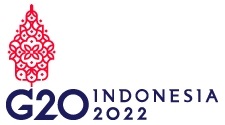The third Finance Ministers and Central Bank Governors (FMCBG) meeting within the framework of Indonesia’s G20 Presidency kicked off in Nusa Dua, Badung, Bali, on Friday (July 15).

The meeting aims to seek ways to promote better global economic recovery amid the issues or challenges that had become more apparent nowadays.
“G20 needs to (apply more measures) by taking real actions based on the spirit of coordination, collaboration, and consensus in order to solve global issues,” Finance Minister Sri Mulyani Indrawati delivered the statement during the opening of the meeting.
In total, 407 delegations were physically present in Bali, and 120 attended the event through virtual means. Some 19 finance ministers and 11 governors of Central Banks were also physically present. Thereby making it the one with the most number of physical attendees during the course of Indonesia’s G20 presidency.
Minister Indrawati stated that the presence of majority of the delegations of member countries, guest nations, and international organizations demonstrated global commitment and willingness to support the Indonesian G20 Presidency, as well as promote a sustainable economy, especially in the midst of global challenges.
Bridging Differences
Indonesia is committed to bridging various differences and becoming the main supporter of multilateralism in the G20 forum to overcome various current global economic challenges.
“We want to be an honest liaison. Indonesia will tirelessly seek communications and consultations, so we can continue to build bridges to accommodate the differences,” the minister noted while opening the 3rd G20 FMCBG meeting.
The 3rd FMCBG meeting discussed seven priority agendas, comprising the current situation and risks of the global economy, health issues, international financial architecture, financial issues, sustainable finance, infrastructure development, and international taxation.
Meanwhile, several issues that became part of the priority agenda are the impacts of the Russian-Ukraine conflict on global food, energy, and financial security.
On the second day of the meeting on Saturday, Indrawati announced that all G20 members has agreed on the majority of the meeting results despite tensions over Russia-Ukraine conflict.
Indrawati conveyed that the meeting succeeded in agreeing on a number of initiatives, and successfully garnering support to overcome various global economic and financial problems.
“There are 14 paragraphs of the draft on the result of this two-days meeting,” Indrawati stated on her speech delivering the results of the meeting.
She mentioned that two paragraphs of the result draft containing different views of several G20 members, one of which was regarding the use of the word “war” on several issues.
Indonesia and other G20 members, however, should still place the G20 as the world’s largest economic cooperation forum that has a long history of solving various global problems.
Additionally, Bank Indonesia (BI) Governor Perry Warjiyo has called upon all G20 members to commit to working together to support global economic recovery in order to realize a sustainable, balanced, and inclusive world economy.
“It is important for us to stay focused on what we have planned to achieve this year,” Warjiyo said at the opening of the second day of the G20 Finance Ministers and Central Bank Governors (3rd FMCBG) meeting.
Such a focus, according to Warjiyo, will send a positive message to the global community about the role and efforts of the G20 toward supporting recovery.
During Saturday’s meeting, the G20 finance ministers and central bank governors discussed five topics including COVID-19 exit strategies for ensuring financial stability, climate-related financial risks, crypto assets, financial inclusion and digitization, and initiatives to address new data gaps.
Written by: Yuni Arisandy Sinaga, Editor: Fardah Assegaf (c) ANTARA 2022
















